How Often Do Parkville Water Heaters
Need to be Replaced?
Ensuring a steady supply of hot water for your family is crucial, yet many Parkville-area homeowners often neglect the maintenance of their water heaters until the day they find themselves without any hot water. To avoid such inconvenient and potentially hazardous situations, it is essential to prioritize the proper care of your water heater. In this comprehensive guide, our experienced plumber, specializing in water heater repair and replacement, will enlighten you about the telltale signs that indicate the necessity of a replacement. Additionally, we will delve into the vital factors that you should consider when purchasing a new system. Discover how you can guarantee a continuous flow of hot water for your household by continuing to read.

How long do water heaters last?
Hot water heaters are an integral part of our daily routines, ensuring we have the necessary hot water for activities such as showering, doing laundry, and washing dishes. However, various factors can influence their durability, similar to any other appliance. On average, a hot water heater typically lasts between 8 to 12 years.
Compared to traditional units, tankless water heaters generally have a longer lifespan. Nonetheless, the longevity of any water heater can be significantly reduced due to inadequate installation or neglecting maintenance.
To ensure optimal performance and extend the lifespan of your water heater, it is crucial to prioritize consistent upkeep and regular inspections. These measures play a vital role in maintaining efficiency and preventing any potential issues.
It's important to be aware that excessive daily usage and high levels of hard water can accelerate wear and tear on your unit, compromising its long-term effectiveness. Therefore, it is advisable to be mindful of these factors and take appropriate measures to address them.

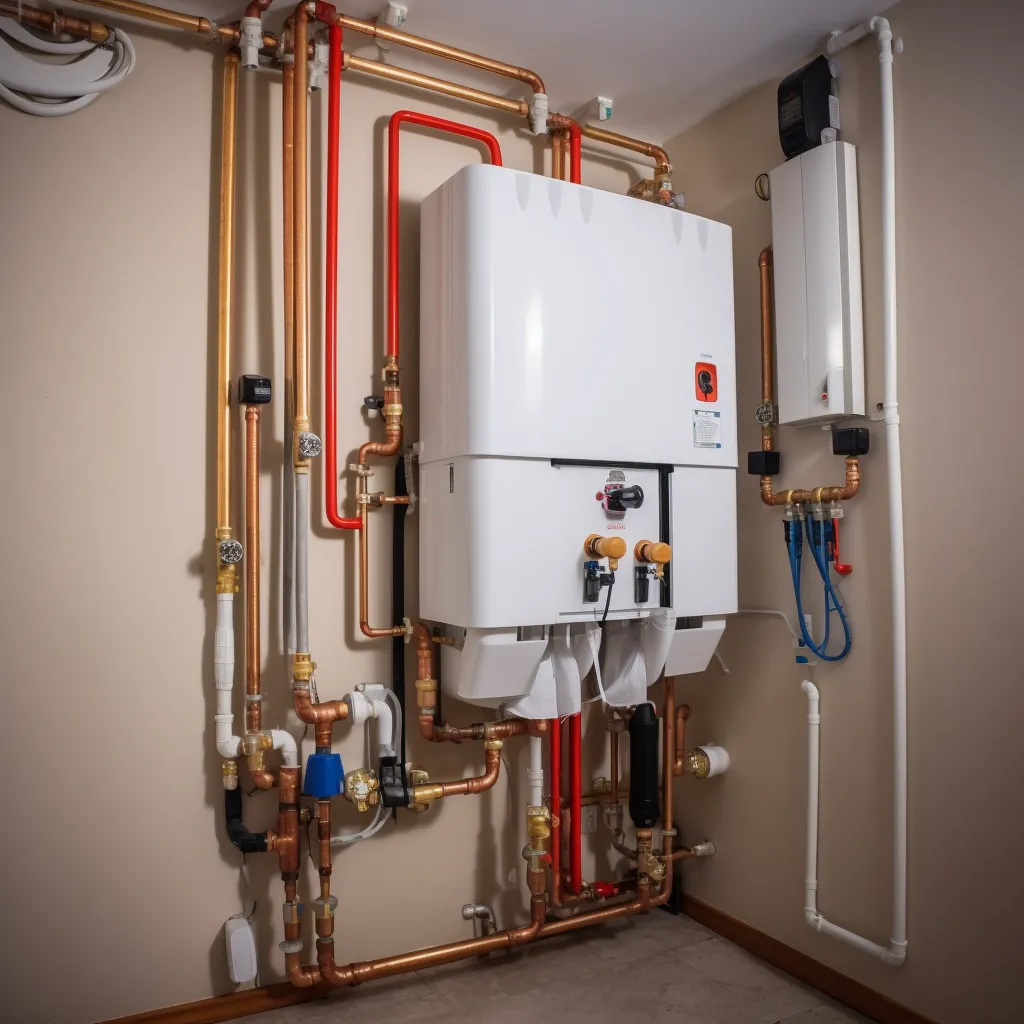
Do you have the budget for a new hot water heater?
Choosing the perfect water heater for your home and budget, can seem overwhelming due to the vast array of options available. However, by considering your budgetary limitations and the unique needs of your household, you can make a well-informed decision. Key factors to consider include energy efficiency, capacity, and how well the water heater aligns with your lifestyle. While some models may come with a higher initial price tag, it's important to recognize that they can lead to substantial savings on your energy bills in the long run. Keep in mind that investing in a high-quality water heater can result in significant cost savings over time, so it's crucial to take your time and thoroughly evaluate all available options before making a final selection.

Replacing a water heater is a big decision
Efficiently selecting a new water heater involves taking into account important factors such as efficiency, age, and cost. If your current water heater is older than a decade or frequently requires repairs, it is a strong indication that upgrading to a more efficient model should be explored. By doing so, you can enhance your water heater's performance while simultaneously reducing your utility bills.

How to extend the lifespan
of your water heater
To ensure the longevity and effectiveness of your water heater, it is vital not to neglect its maintenance until it malfunctions completely. By implementing the following recommendations, you can maximize your water heater's lifespan and enhance its performance:
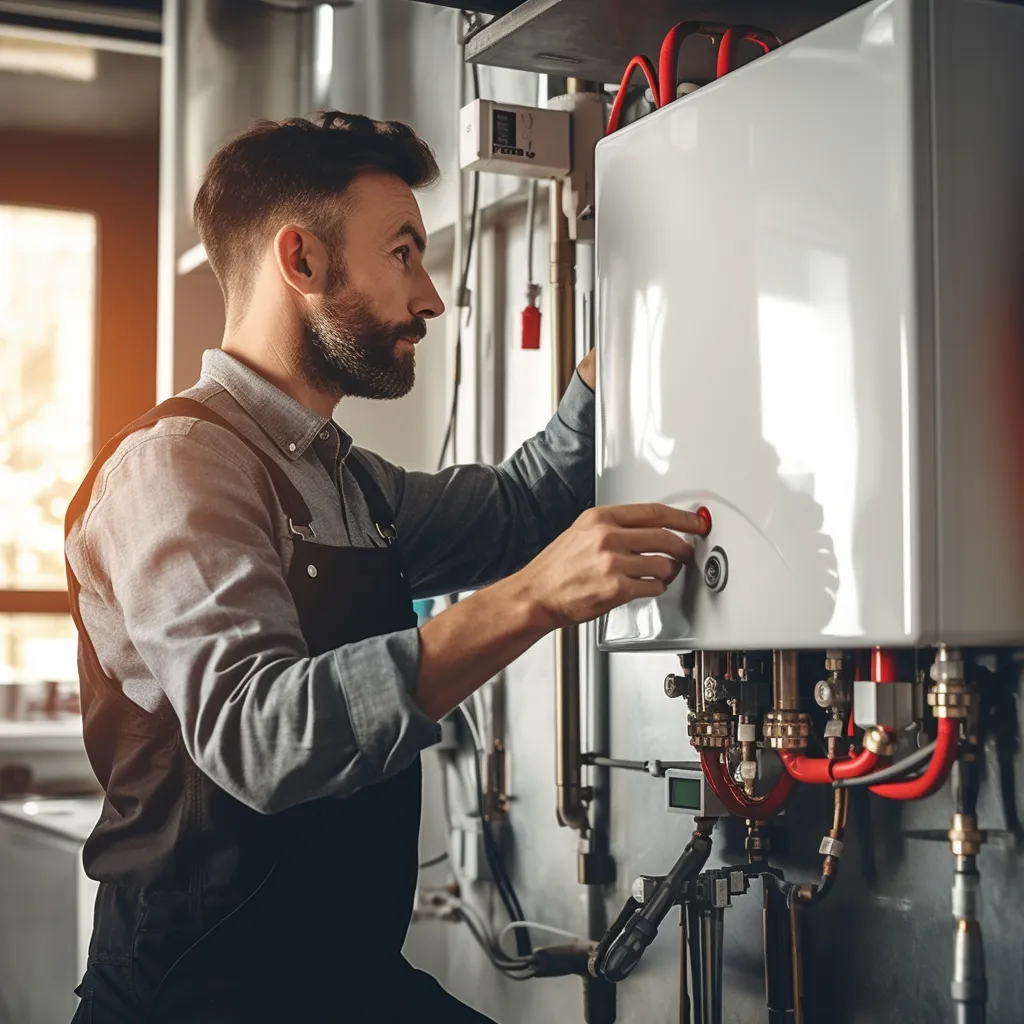
Regular Flushing: It is crucial to flush your water heater regularly to prevent the accumulation of sediment, which can impede its efficiency and give rise to potential problems.
Temperature and Pressure Relief Valve (TPR Valve) Check: The TPR valve plays a critical role in ensuring safety by releasing excessive pressure and averting the risk of tank rupture. Regularly inspect and test the TPR valve to confirm its proper functioning.
Insulation: Enhance energy efficiency and minimize heat loss by insulating both your water heater and its pipes. This simple measure can significantly improve the overall performance of your water heater.
Check for Leaks: Conduct periodic inspections to identify any signs of leaks or dripping water from your water heater. Even minor leaks can cause substantial damage over time, so prompt detection and repair are essential.
By adhering to these guidelines, you can optimize the longevity and efficiency of your water heater. Remember, proactive maintenance is key to avoiding costly repairs and ensuring the smooth operation of your water heating system.
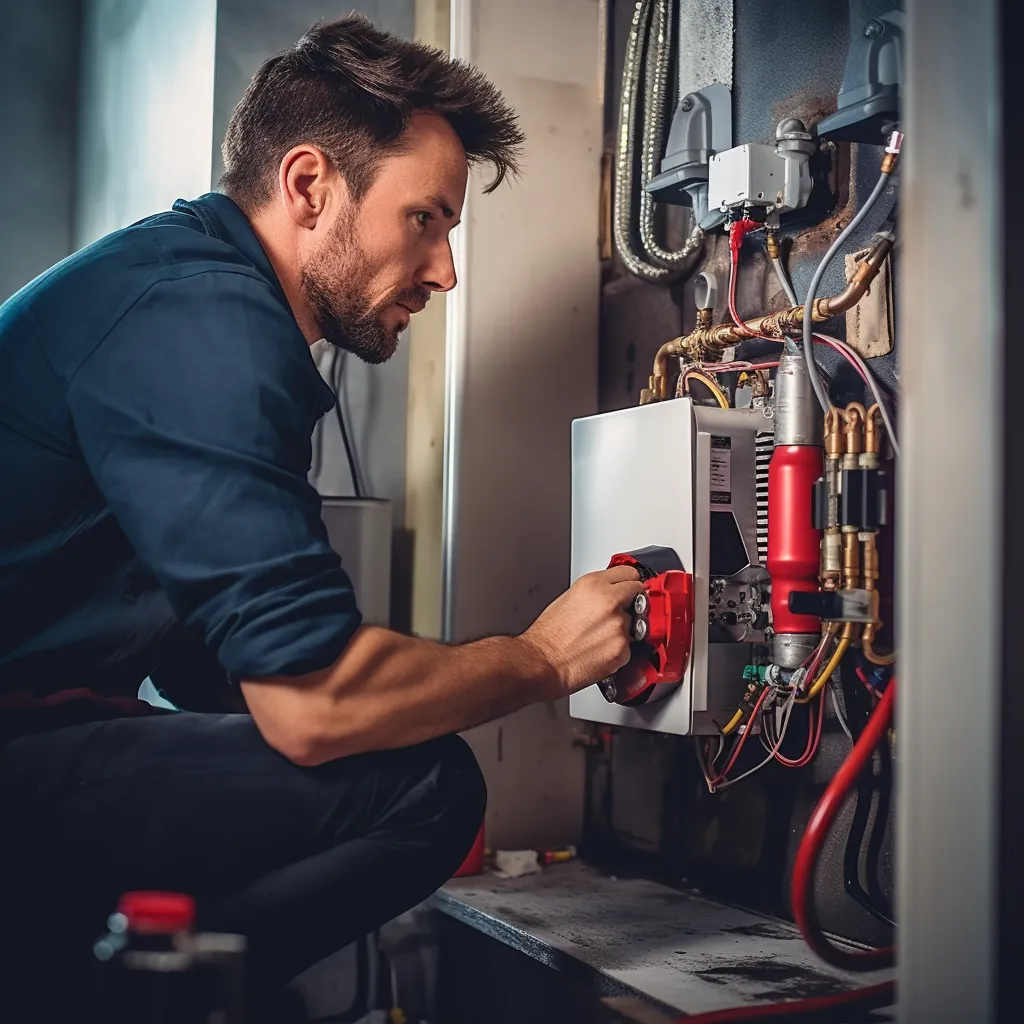
Address any water heater malfunctions immediately
It is crucial to promptly attend to any water heater malfunctions that may arise. If you notice a lack of sufficient hot water or peculiar noises coming from the unit, these could be indicators of underlying issues. It is highly recommended to reach out to a specialist who can provide timely repairs. By taking this proactive step, you not only extend the lifespan of your water heater but also potentially save a significant amount of money in the long run.
Signs it's time to get a new water heater
Water heaters, like any mechanical device, have a limited lifespan, including your home's heater. Certain warning signs indicate that it's time to consider replacing it:

If your water heater is over 10 years old, it's worth thinking about getting a replacement as most water heaters last between 10 and 15 years.
Popping or gurgling sounds from your water heater are indications that you need a new tank.
Water pooling around the base of the water heater suggests a leak that needs immediate attention.
Frequent hot water outages or inconsistent heating can be signs of a malfunctioning water heater that may require replacement.
A faulty water heater can result in increased energy consumption and higher bills. If you notice a sudden spike in your energy costs, it's wise to consider getting a new water heater.
Frequent repairs on your water heater can become costlier in the long run. Investing in a new and reliable unit might be a more economical choice.
Rust or corrosion on or around the water heater is a clear indication of suboptimal functionality, signaling the need for replacement.
Unusual taste or odor in your hot water could indicate a problem with the water heater. Replacing it ensures the provision of safe and clean hot water.
Consistently inadequate hot water supply for your household's needs strongly suggests that it's time for a replacement.
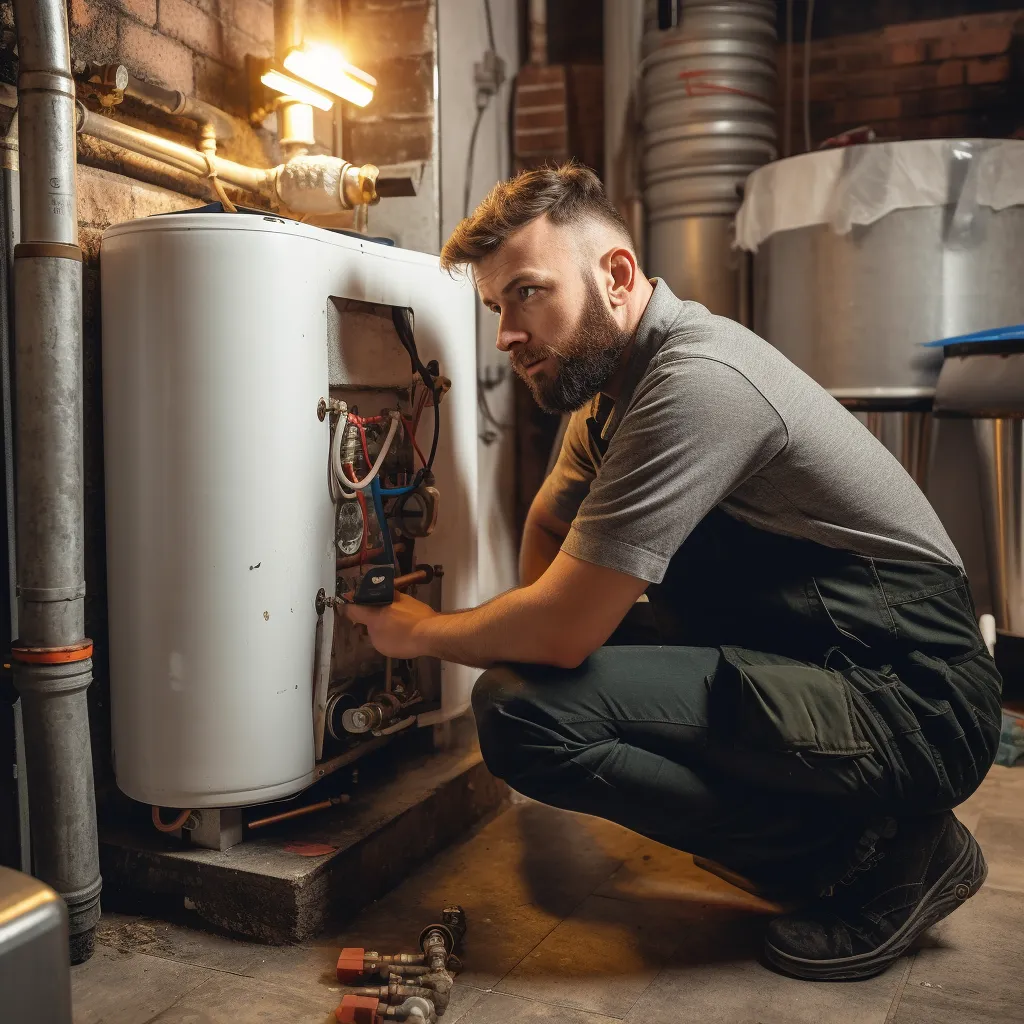
By being attentive to these indicators, you can make a well-informed choice regarding the replacement of your water heater while guaranteeing a consistent provision of hot water for your household.
What is the cost of replacing
a water heater?
When determining the cost of replacing a water heater, several factors play a significant role. These factors include:
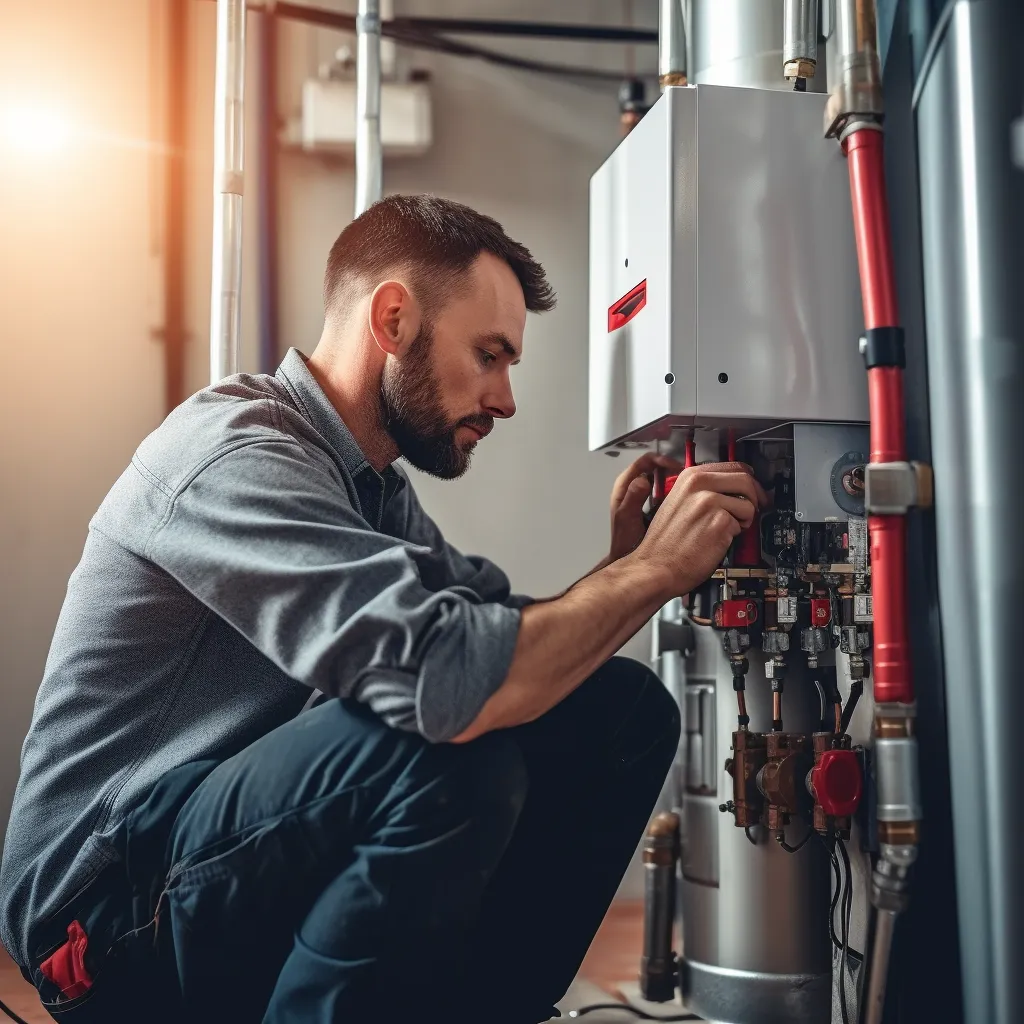
Type and Size: The choice of water heater, whether it is a conventional tank-based system or a tankless unit, will have an impact on the overall cost. Moreover, the size or capacity of the water heater necessary to meet the hot water demands of your household will also influence the price.
Energy Efficiency: Energy-efficient water heaters generally come with a higher initial cost but offer long-term savings on energy bills. While investing in a more efficient model may require a greater upfront investment, it can prove cost-effective in the long run.
Installation Requirements: The complexity of the installation process can affect the cost of replacing a water heater. Factors such as accessibility, venting requirements, and necessary plumbing modifications can contribute to the expenses associated with installation.
There's no denying that replacing a water heater requires a significant financial commitment. The actual costs involved, however, can vary based on several factors. For standard electric water heaters, you can expect replacement costs to fall within the range of $500 to $2,500. On the other hand, tankless water heaters tend to have higher repair costs, ranging from $1,000 to $3,500. Considering the substantial expenses associated with water heater replacement, it's crucial to think about the long-term advantages. By opting for a high-quality unit, you can enjoy reduced utility bills and improved energy efficiency, ultimately making it a valuable investment in the long run.
Common frequently asked questions about replacing and installing a water heater
If you're considering water heater replacement and installation, it's important to address common queries for valuable guidance. Here are some frequently asked questions to help you make informed decisions:
What size water heater is suitable for my needs?
Determining the appropriate size of a water heater is crucial for efficient performance. Factors like household size and hot water usage patterns can help in selecting the right capacity.
How long does the installation process usually take?
The duration of the installation process may vary depending on various factors such as the complexity of the installation, the type of water heater, and any additional modifications required. Generally, a professional installer can provide a more accurate estimate after assessing your specific situation.
Which fuel source is recommended for my water heater?
The recommended fuel source for your water heater largely depends on your preferences, availability, and local regulations. Common options include electricity, natural gas, propane, or solar energy. Each fuel source has its advantages and considerations that should be evaluated before making a decision.
What is the estimated cost of water heater replacement?
The cost of water heater replacement can vary based on several factors, including the type of water heater, size, fuel source, and any additional installation requirements. It is advisable to consult with a professional installer who can assess your needs and provide a more accurate cost estimate.
Is professional assistance necessary for the installation?
While some individuals may have the necessary skills for water heater installation, it is often recommended to seek professional assistance. Professional installers possess the expertise, tools, and knowledge to ensure a safe and efficient installation, minimizing the risk of potential issues or damage.
It's crucial to prioritize your specific requirements during your search for a new water heater. Consulting licensed plumbers is vital to ensure dependable advice and assistance. They can help you choose the ideal size and type of water heater that perfectly suits your household. Moreover, they will provide you with an estimation of installation expenses and identify any potential supplementary tasks that may be necessary. Trusting professionals ensures a seamless water heater replacement or installation process tailored to your needs.
How you can save money
when replacing a hot water heater
Replacing a hot water heater doesn't have to be expensive. Follow these money-saving tips to achieve a cost-effective replacement and maintain consistent access to hot water for your home:
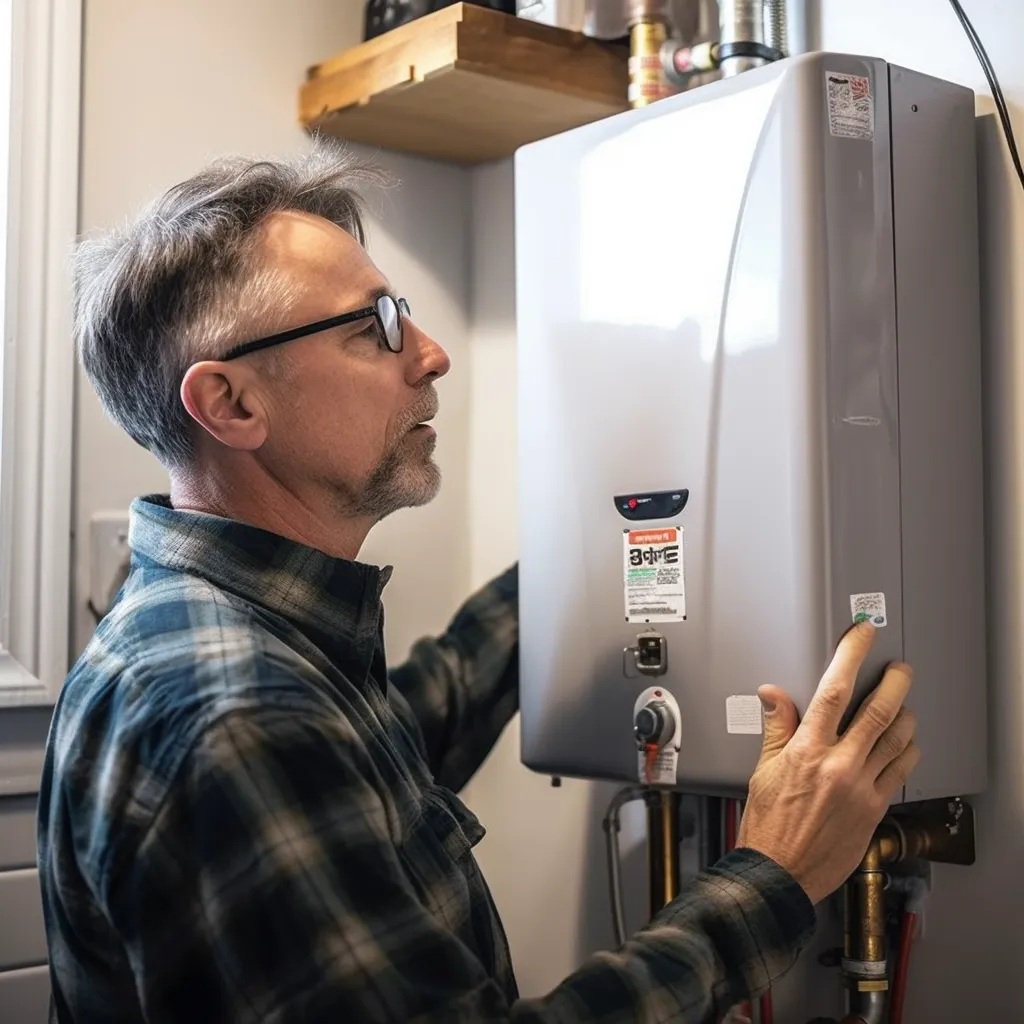
Conduct thorough research when replacing your water heater to find the best option for your home. Take into account both standard electric models and tankless systems to determine which one suits your needs and preferences.
When selecting a water heater, prioritize energy efficiency. Investing in an energy-efficient model will result in long-term cost savings by reducing your monthly utility bills. Look for a water heater that consumes less energy and boasts a high Energy Factor (EF) rating.
To ensure you get the best deal, shop around and compare prices from different retailers and suppliers. Additionally, take advantage of any rebates and incentives offered by your state for purchasing energy-efficient water heaters, as they can further reduce the overall cost.
While tankless water heaters may come with a higher upfront cost, they provide significant energy savings over time. It's essential to consider the long-term benefits when making your decision.
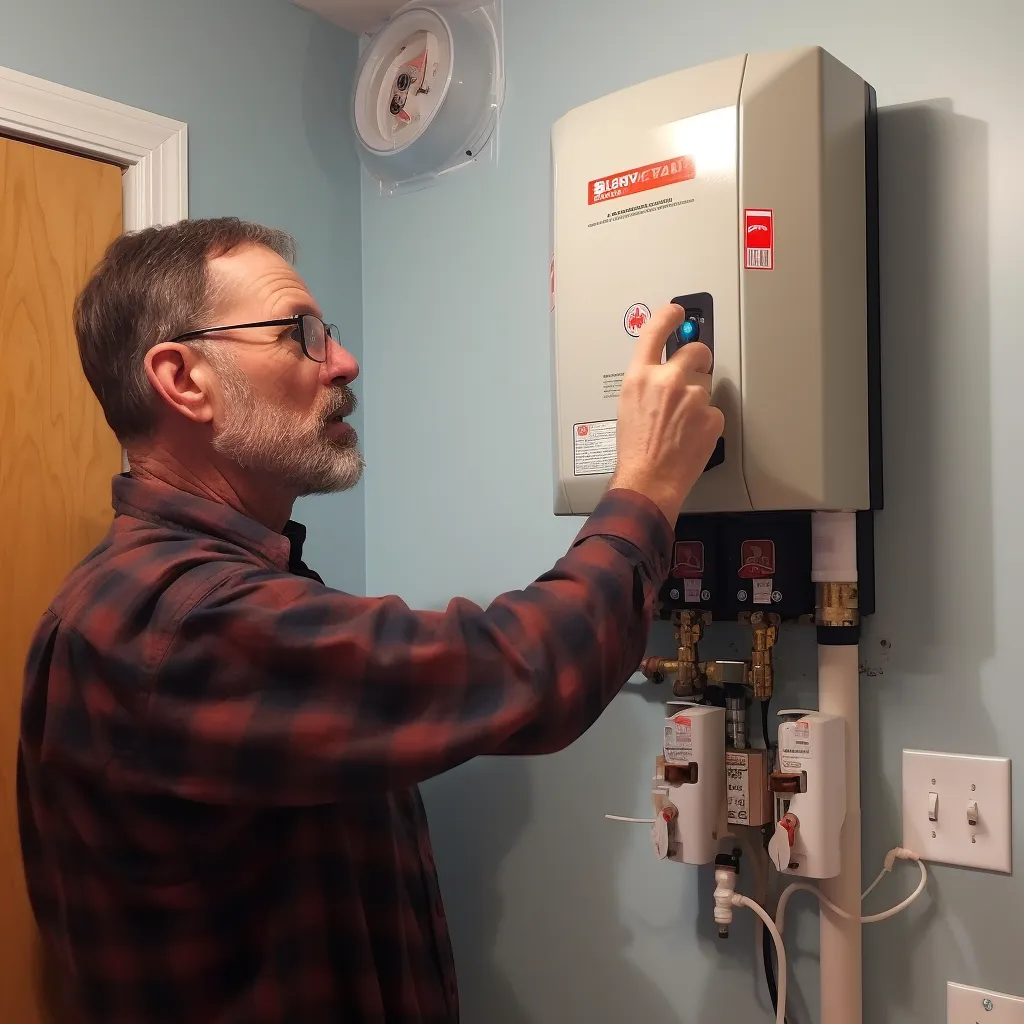
Why you should hire a professional
vs DIY installation
of a water heater
While the idea of replacing your old hot water heater may seem like a cost-saving option at first, it's essential to understand that this task can be quite complex. While you might be tempted to handle the installation yourself, it requires specific skills and knowledge that professionals possess. Regardless of your choice, opting for professional installation can ultimately save you a significant amount of money in the long run.
Professional installers have the expertise to ensure that the installation is done correctly, following all the necessary codes and regulations. Additionally, they often provide warranties, giving you added peace of mind and a hassle-free experience.
Conversely, although taking a DIY approach may seem tempting, it is not recommended. DIY installations increase the likelihood of errors, which can result in additional expenses such as repairs or higher energy usage.
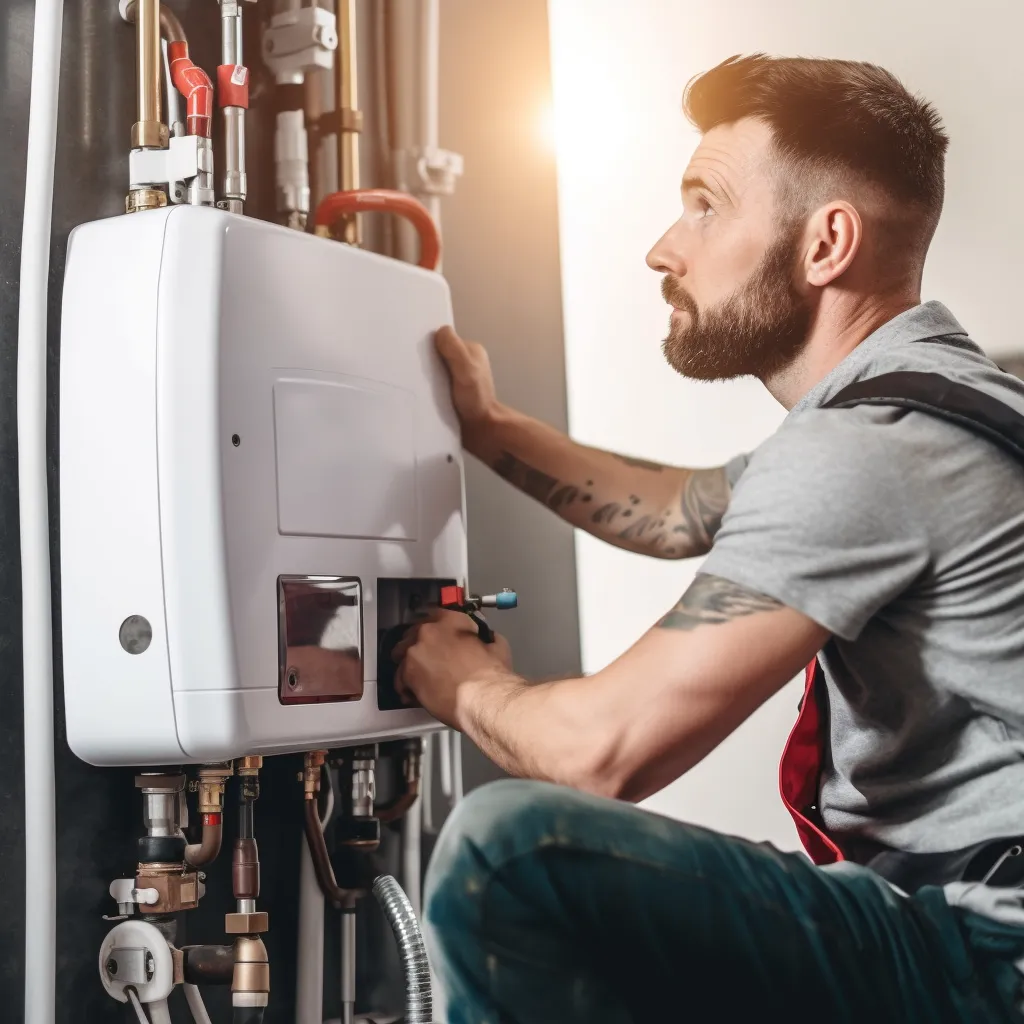
Tips on finding a water heater professional for installation
If you're looking to hire a licensed professional for water heater installation, it's important to keep the following key points in mind:

Check Credentials: Before making a decision, make sure to check the credentials of the professional and ensure that they are licensed. This ensures that they have the necessary qualifications and have met the required standards for the job.
Consider Experience and Expertise: Take into account the professional's experience and expertise in water heater installation. Look for professionals who have a proven track record in this field and are knowledgeable about the latest installation techniques.
Read Reviews: To get an idea of the professional's reputation, take the time to read reviews from previous customers. This can give you insights into their quality of work, customer service, and overall satisfaction.
Verify Insurance Coverage: It's crucial to verify that the professional has insurance coverage. This provides protection for both you and the professional in case of any accidents or damages that may occur during the installation process.
Obtain Detailed Cost Estimates: To ensure you're getting a fair deal, it's recommended to obtain detailed cost estimates from multiple professionals. This allows you to compare prices and services offered, helping you make an informed decision.
Inquire About Warranties or Guarantees: Ask the professional about any warranties or guarantees they offer for their work. This can provide you with added peace of mind knowing that you're covered if any issues arise after the installation.
Confirm Permit Handling and Compliance: Make sure the professional will handle any necessary permits and comply with local regulations. This ensures that the installation is done in accordance with the required standards and avoids any legal issues.
Choose Effective and Transparent Communication: Select a professional who communicates effectively and transparently throughout the process. Clear communication helps ensure that everyone is on the same page and reduces the chances of misunderstandings.
Contact Us
GET IN FULL TOUCH
PHONE: (410) 883-5584
EMAIL:
william@waterheaterparkville.com
Strong Plumbing Parkville
Parkville, MD 21234
